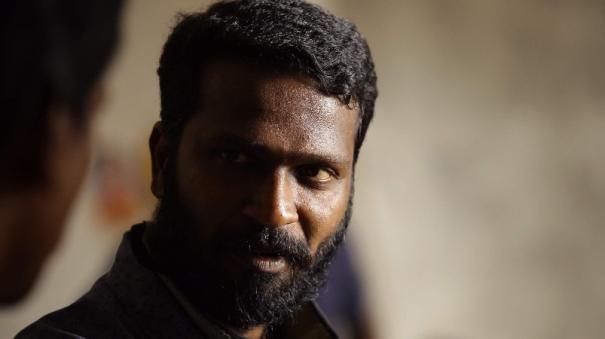Vetrimaran - Fate, Determinism and Absented Free-will
A Tiny case study on Vetrimaran's films
I always wondered how Vetrimaran crafts his films. This question should be asked for every creator’s works because each director has their way of narrating the stories, creating characters, and building the world. The same goes for the style, tone and treatment towards the plot. This raises a question, What makes a director worth studying and celebrating or simply ignoring? It takes a lot of factors to decide the answer to the question, but just skip the part for now and get into the topic, let’s take a look at Vetrimaran’s world and characters. His world is ground rooted and carefully designed to have realistic elements in them. One thing that comes to my mind when I look at his films is the fate of the characters, and how he narrates them. From Pollathavan to Asuran, the consciousness of his stories hold some fundamental ideas such as determinism, fate and free will.

Fate - Most commonly refers to destiny, a predetermined course of events.
His scenes in the plot are carefully designed to have the details of causes and effects. One example where this concept is almost perfected is Asuran. If we look into the story, The Wild boar’s entry into the land almost causes most of the events that occurred in the story after. Not only here, but even in films such as Pollathavan, Adukalam and Vadachennai, all of them are carefully designed to have this cause-and-effect chain. But how these are connected with the themes that we mentioned above? To display the fate of the characters, this small and granular level of detail is much needed. This is brilliantly portrayed in the Vadachennai film, where Jawa Palani’s character is stabbed by Anbu. The poetic justice of the character is getting stabbed by someone who doesn’t have strong grief towards him and who is locked in a chaotic situation to kill him, just like how Java Palani himself stabbed the Rajan character. The entire events from Anbu and his lover caught while making love, up to the attempt of warning the Jawa Palani to not talk bad about his lover in the slum are told in very much detail. This many details towards the plot, make justification the fate that is given to that character decently. Without the details of events and how they happened, the justice towards the character looks plain and forcefully fed, especially in films which heavily depend on realism.
Determinism - A Philosophical view, where all events are determined completely by previously existing causes
This is interesting when we think about how Vetrimaran can directly tell the deterministic fate of the characters in the plot. Remember an interval scene from Vadachennai, where one of the characters tells their gang members not to leave the spot. He said, “Avangalallem angaye irukka sollu, ennamo ulla solluthu inniku Senthiloda voda kadaisi naal innikuthaanu (Ask them to stay there, inside me tells that today is Senthil’s last date)”. Another example from the film is, Rajan wife’s warning to stay before he leaves the house. And In Pollathavan, Selvam’s words to his brother such as “Enna mudi da ithu Virotha kaaran paatha , kaiyoda kondu poiruvaan” and “Annan illana, unna potruvaangeda”, there are many examples where the character mentions about upcoming events of the plot. This went to another level when Rajan comments about current politics in Tamil Nadu before his murder. These things are carefully made considering both realistic elements in terms of words in dialogues and situations in the plot. Sometimes magical realism-filled moments such as Women who tells Kuri (astrology) to Chandra’s character in Vadachennai, create the same verisimilitude effect in the story.
Another technique that creates this deterministic world is Vetrimaran’s treatment towards time and space in the narration via thoughtful flashbacks. In Pollathavan, the movie starts with Vasu’s intention to find the stolen bike, and when flashback narrates his love towards the motorcycle and introduces the characters and the motorcycle, we knew the past as well as the present, it symbolises that what is going to happen is already determined. In Vadachennai, Anbu’s journey to the story, and in Asuran, Vadakooran’s death all are already introduced to the audience, which is commentary over the fate of all those characters which is also predetermined. This technique creates a kind of lock where the characters are bound to act in a world where the freewill is absented. Of course, this lock is not a real one, but just inside an audience’s consciousness.
There are a lot of examples from Vetrimaran’s films where this illusion of narration between present and past is used for creating this determinism in the story world. I don’t want to mention all of those here. If you want, you can watch/rewatch the films. Stories are great, there is no doubt about that but it is very important to convert the frames and narration to manipulate the audience’s consciousness, ultimately they are the only thing that provides cinematic experience. These are some of the elements I think make a director like Vetrimaran an auteur and stand out from the crowd.